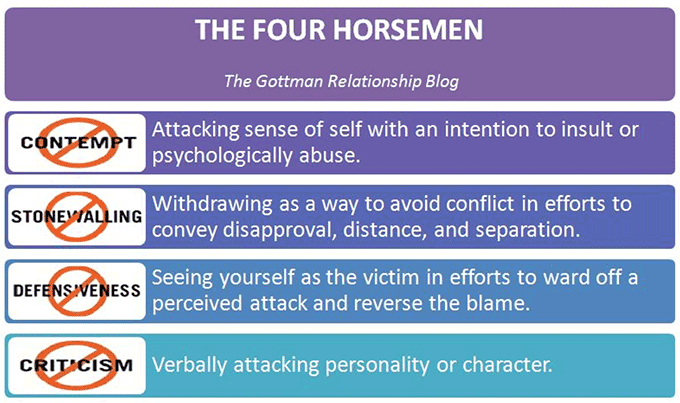Believe it or not, verbal disagreements in relationships are not only normal but can be healthy. We all are individual people with our own values, our own opinions and priorities – and they do not always line up with those of our partner. So when we become aware of these differences, we may fight. And if we are not fighting, this might mean we are simply avoiding the conflict which can lead to many other issues.
HEALTHY vs. UNHEALTHY: It’s all in how you do it
So what is the benefit of fighting? Well, since mismatching values/priorities/plans/opinions happen in all relationships, it can be useful to bring them up and discuss them rather than avoiding them and allowing them to stew.
However, disagreements can become heated–especially if each partner feels strongly about their position (e.g. how to spend money, how to raise children). However, just because we feel strongly about our own position, it does not mean that a verbal discussion about it needs to be hurtful, attacking, or denigrating to our connection. In fact, productive fighting can actually bring the two partners closer together.
GAS ON THE FIRE: What makes things worse?
When two people are talking about something they already disagree on, there are certain ways they might talk to each other that will make the situation worse. Dr. John Gottman, a world-renowned relationship researcher, talks about the “Four Horsemen of the Apocalypse” which is a term to describe the four ways that couples’ communicate that have a significantly negative impact on the relationship: criticism, contempt, defensiveness, and stonewalling (e.g. silent treatment). Dr. Gottman’s research suggests that the presence of any of these four characteristics–especially contempt–can predict whether couples will stay together or break up.
Check out Dr. Gottman’s website for more information and a good video on this topic: https://www.gottman.com/blog/relationships-not-arguing-means-youre-not-communicating/

ANTI-INFLAMMATORIES: Ways to contain the fight to a healthy level
So what are the useful or productive ways to discuss topics partners disagree on? Here are a few suggestions:
- Pick a time and a place. When we are rushed or feeling particularly irritable, we may not be in the best place to have a difficult conversation. Pick a time when you (and your partner, ideally) have some time to discuss the topic at hand and have the energy to manage your emotions while it occurs.
- Watch your tone. When you are already disagreeing, it can be easy to inflame an already tense situation. Try your best to keep your tone respectful and neutral.
- Do not blame–instead, invite your partner to help find solutions WITH you. The more we accuse our partner of causing problems or causing our own aggravation, the less productive the disagreement will become. Instead of focusing on what your partner has (or has not) done, talk about what is going on for you (“I’ve been feeling overwhelmed with caring for the household chores) and be curious about how your partner might see their role in making changes (“In the past it has been much easier to get things done with your help. What could we do to make some changes this week?”). This will make it easier for your partner to hear you out and increase the chances of the discussion continuing without getting side-tracked. For more information, check out: https://www.gottman.com/blog/weekend-homework-assignment-softening-startup/
- Take breaks if you need to… then come back. We all get overwhelmed at times during disagreements. The best thing you can do for yourself and your partner is to request a break. If you do take a break, do something comforting (e.g. go for a walk, watch a funny clip on YouTube, drink tea, whatever works for you) and make sure to re-engage in the conversation.
